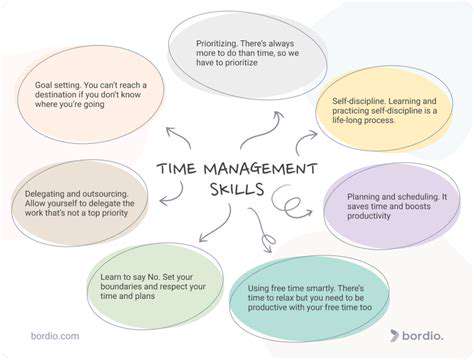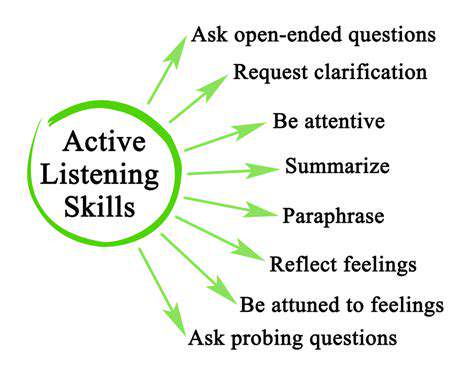Guide to Studying Abroad in Europe
Budgeting for Your European Study Abroad Experience
Understanding Your Expenses
Planning finances for studying in Europe demands careful attention to detail. Beyond tuition, you'll need to account for housing, meals, transport, leisure, and surprise costs. Dive deep into living expenses specific to your target city. The exchange rate between your currency and the Euro plays a critical role in realistic budgeting.
Currency values fluctuate constantly. Economic shifts like inflation spikes or local price hikes could derail your plans. Always pad your budget with extra funds to handle these unpredictable situations.
Accommodation: Finding Your Perfect Fit
Europe's housing market offers everything from dormitories to premium studios. Weigh all choices carefully to match both your lifestyle and wallet. Decide if you're comfortable with roommates or need private space, remembering to include utility bills in your calculations.
Location dramatically impacts your experience. Being near campus or public transit can save hours and euros weekly. Evaluate walking distances to supermarkets, cafes, and transit stops since these affect both your schedule and spending.
Food and Daily Living Costs
Grocery and restaurant prices swing wildly across Europe. While some districts cater to student budgets, others cater to luxury seekers. Mastering local markets and neighborhood eateries can halve your food expenses compared to tourist traps.
Sampling regional dishes is part of the cultural journey. Set aside funds for memorable meals but track spending carefully. Student meal deals and free museum days help balance your budget while enriching your experience.
Transportation: Navigating the Continent
Europe's transit web includes budget buses and premium rail services. Calculate all mobility costs - monthly passes often beat single tickets. For regional exploration, investigate youth discount cards before considering rental cars.
Activities and Entertainment
Europe's cultural tapestry offers endless discoveries. Allocate funds for must-see attractions but prioritize free walking tours and student-priced museum entries. Many cities host no-cost concerts and festivals - perfect for immersive experiences without financial strain.
Unexpected Expenses and Emergencies
Even the best plans encounter surprises. Medical issues, stolen items, or urgent travel can drain resources. A robust emergency fund is non-negotiable. Comprehensive travel insurance covering healthcare and belongings provides critical safety nets abroad. This preparation lets you focus on growth rather than crises.
Preparing for the Transition and Staying Connected with Loved Ones
Understanding the Emotional Landscape
Adapting to foreign surroundings triggers complex emotions. Initial excitement often mingles with disorientation and longing for familiarity. Accepting these conflicting feelings as normal prevents unnecessary stress during adjustment. The intensity typically lessens as routines develop.
Geographic distance amplifies emotional challenges. Processing through writing, calls home, or campus counseling helps maintain equilibrium during this vulnerable phase.
Maintaining Strong Communication
Regular contact with your support network sustains mental health overseas. Scheduled video calls create comforting predictability amidst new experiences. Share both triumphs and struggles to maintain authentic connections.
Utilizing Technology for Connection
Modern apps shrink continental divides. Video platforms enable shared meals across time zones, while photo journals keep families engaged in your journey. Creative digital communication can feel more meaningful than frequent brief messages.
Planning Regular Visits and Activities
Anticipated reunions ease separation. Coordinate holiday returns or virtual book clubs to maintain shared experiences. These planned touchpoints become emotional lifelines during demanding academic periods.
Developing a Support Network
New friendships form crucial safety nets. Classmates understand your unique challenges while local contacts provide cultural insights. Campus clubs offer built-in communities around shared passions.
Prioritizing Self-Care and Well-being
Amid academic pressures, self-care isn't indulgence - it's sustainability. Consistent sleep, nutritious meals, and downtime prevent burnout. Physical activity doubles as stress relief and exploration. Remember: thriving abroad requires caring for your whole self.
Read more about Guide to Studying Abroad in Europe
Hot Recommendations
- How to Stay Productive While Working Remotely
- Tips for Managing Conflict with Coworkers
- Entrance & Certification Exams (升学考试)
- How to Improve Your Storytelling Skills (Speaking)
- How to Find Profitable Side Hustles
- Tips for Preparing for the TOEFL iBT Home Edition
- Guide to Switching Careers from [Industry A] to [Industry B]
- How to Run an Effective Hybrid Meeting
- Tips for Marketing Your Side Hustle on Instagram











